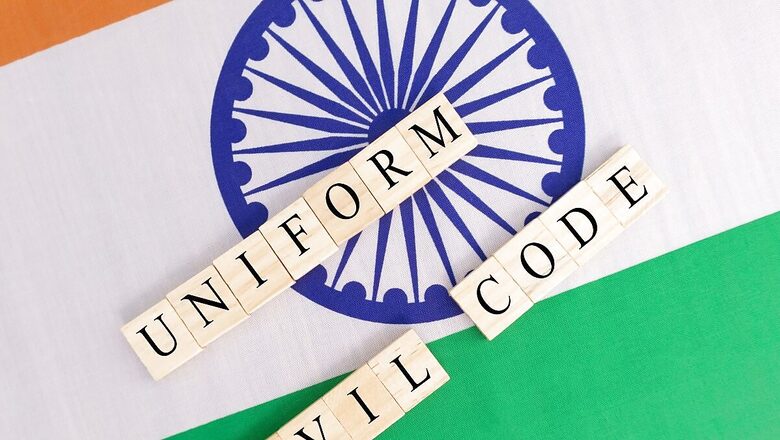
views
Uttarakhand will become the first state after Independence to adopt the Uniform Civil Code (UCC), after Goa, where it is operational since the time of Portuguese rule. The UCC will be applicable to all religious communities in India on matters of marriage, inheritance, divorce, adoption, maintenance and others.
The 800-page final report submitted by the five-member committee to Uttarakhand chief minister Pushkar Singh Dhami recommends exempting tribal communities from its purview, focusing on women empowerment, including banning polygamy and forming a uniform marriage age across religions.
Moreover, practices such as Halala, Iddat and Triple Talaq under Muslim personal law will be punishable offences in the report submitted by the panel. The UCC is likely to regulate live-in relationships.
Once the Uttarakhand Assembly approves the final draft in the session beginning today, the Bill would become a “model” for other states such as Gujarat and Assam to adopt.
Impact of UCC on Personal Laws
Hindu community: Existing laws like the Hindu Marriage Act (1955) and the Hindu Succession Act (1956) would be dissolved and incorporated into the UCC. This would lead to standardisation and uniformity in marriage, divorce, inheritance, and succession laws for Hindus.
Succession law: Under the Hindu Succession Act (1956), the husband’s family is considered the rightful heirs of the dead wife, and her parents and siblings are considered secondary. The Act also make a distinction between ancestral and acquired property. Under UCC, who is considered as legal heirs and how the property is acquired under the Act will change.
Inheritance law: In Hindu laws, full-blood relations are preferred over half-blood ties under Section 18 of the Hindu Succession Act. It also enlists people who cannot inherit the property on different grounds. This will change with the implementation of UCC.
Adoption: The UCC will bring uniformity, which means, communities, which were currently not allowed to legally adopt a child, may be given such an option. At present, the Hindu Adoption and Maintenance Act (1956) is meant only for Hindus, Jains, Sikhs and Buddhists.
Hindu Undivided Family: The HUF is a separate legal entity, which has a separate PAN card, and can run business and invest in shares and mutual funds. It is barred from tax exemption of up to Rs 2.5 lakh. Once the government abolishes tax, insurance and investment exemptions, it will impact several Hindu families over loans and bank accounts.
Muslim community: If UCC is adopted, practices such as contract marriage (mutah), Nikah halala, misyar marriage, and polygamy would likely become ineffective. Even the minimum marriage age under the Shariat law would be changed.
Adoption: At present, a Muslim can’t adopt a child, but can become a ‘Kafil’ and provide for the maintenance and well-being of the child even though he is not a biological parent.
Polygamy: At present, a Muslim man has the right to marry four women at a time, but their women counterparts cannot do so. The UCC, however, will end polygamy, which means the Muslim man will lose his right to legally marry four different women.
Divorce and Separation: The UCC will bring more accepted ways through which both Muslim men and women can end their marriage. It will ensure a balance between the rights of both men and women.
Christian Marriage: At present, the Catholic law recognises a Christian marriage as permanent, indissoluble, while some may also recognising it as a contract. The UCC will bring uniformity in marriages.
Divorce: The Catholic law does not recognise a divorce, however, Christians, can file for divorce under the Indian Divorce Act. The UCC will bring uniformity in rules and procedures for divorce.
Succession: The Succession Act (1925) gives Christian mothers no right to inherit property of their dead children. This will change under UCC.
Sikh community: The Anand Marriage Act of 1909 governs the marriage laws of Sikhs. However, there is no provision for divorce. If the UCC is introduced, a common law for divorce is likely to be applied to all communities, including Sikhs.
Parsi community: The UCC would impact the laws of adoption within the Parsi community. Currently, Parsis do not recognise the rights of adoptive daughters, and adopted sons have limited inheritance rights. The UCC may introduce reforms to address these disparities.
Inheritance: If a Parsi woman marries outside her community, her children do not hold the right to inherit the property of a deceased Parsi intestate. This rule would change under UCC.
















Comments
0 comment